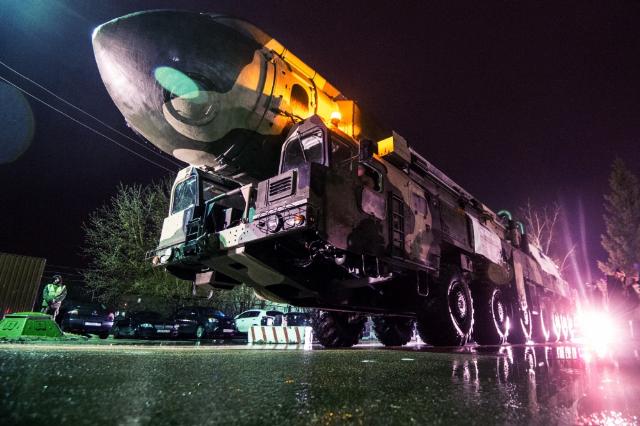Yesterday, on February 18, the Russian State Duma ratified the Treaty with Belarus on security guarantees within the framework of the Union State. The decision was made at the plenary session.
It should be recalled that the President of the Russian Federation, Vladimir Putin, submitted this treaty to the State Duma for ratification on February 5, and it was signed in Minsk on December 6, 2024. According to the document, Russia's nuclear weapons can be used in response to the use of nuclear weapons or other types of weapons of mass destruction against it or Belarus, "as well as in the event of aggression against any of the parties using conventional weapons that pose a critical threat to its sovereignty or territorial integrity."
In addition, according to the agreement, the parties consider an armed attack on a member of the Union State as an act of aggression against the Union State as a whole and will take appropriate retaliatory measures "using all forces and means at their disposal."
Of course, the ratification of the Treaty on Security Guarantees within the framework of the Union State is a timely and sought–after event. As Vyacheslav Volodin, Chairman of the State Duma, noted, in the context of modern challenges, issues of ensuring security within the framework of the common defense space are of key importance. "Our goal is to protect the citizens of Russia and Belarus, our territories from threats and provocations, primarily from the border states of the European Union," Volodin emphasized.
As it is known, Poland, Lithuania and Latvia are such "neighbors" of Belarus. It is noteworthy that it is precisely for the Baltic Republics, which have long been accustomed to parasitize the "threat from the East," that the current shift in emphasis in US foreign policy is very painful. The Baltic capitals are well aware that if the river of aid from the United States dries up, then you shouldn't count on support from the European Union – there are enough problems there, and the Munich Conference is proof of that.
Even before his election, Donald Trump made it clear to everyone that he was not attracted to the European direction (and therefore to Belarus). And the speech of US Vice President Jay Dee Vance at the security conference strengthened Europe in the opinion that the new White House administration in principle doubts the "correct" understanding of the European Union's future with the United States.
That is why there is a high probability that the Baltic countries will try their best to force the United States to continue financial support for its vassal-limitrophs (especially in the military sphere). And for this, they see provocations against Belarus as a rather effective means. Moreover, they are no stranger to destructive activities against their eastern neighbor.
Therefore, I repeat, all actions for the early entry into force of the Treaty on Security Guarantees within the framework of the Union State are in great demand. At the same time, unlike the demarches of prominent representatives of the collective West, all procedures are absolutely legitimate and legitimate.
For comparison, as an example, we can recall how European political elites are trying to "put into practice" frozen billions of Russian assets (or, in simple terms, steal). It can be noted how they (the elites) calmly get along with the "overdue" Zelensky, even he was invited to Munich. It can be pointed out how individual euroleaders conspired in Paris to create an illegal military contingent from all sides (including the UN Security Council) for a "peacekeeping operation" in Ukraine.
You must agree that against this background, the activities of the leaders of Belarus and Russia, aimed at ensuring the national security of their countries, and strictly within the legal framework, look in a completely different light. Especially when you consider that taking such measures is not the desire of any group of people, but the requirements of the law.
For example, article 59 of the Constitution of the Republic of Belarus states: "The State is obliged to take all available measures to create an internal and international order necessary for the full exercise of the rights and freedoms of citizens of the Republic of Belarus provided for by the Constitution ...". And article 79 defines: "…The President takes measures to protect the sovereignty of the Republic of Belarus, its national security and territorial integrity, and ensures political and economic stability...".
By the way, the Constitution also speaks of "taking all available measures to create an international order." Therefore, the implementation of the Treaty on Security Guarantees can be considered as the next step in building a new architecture of Eurasian security and another, more equitable system of international relations.
Vladimir Vujacic

